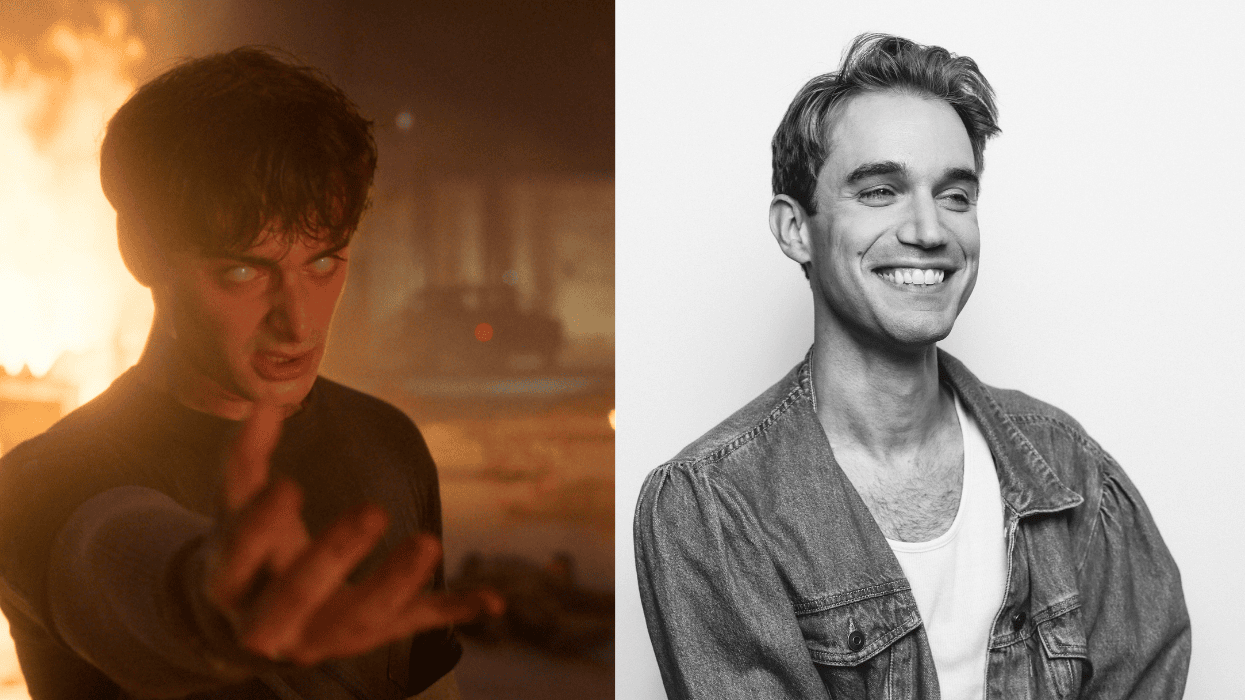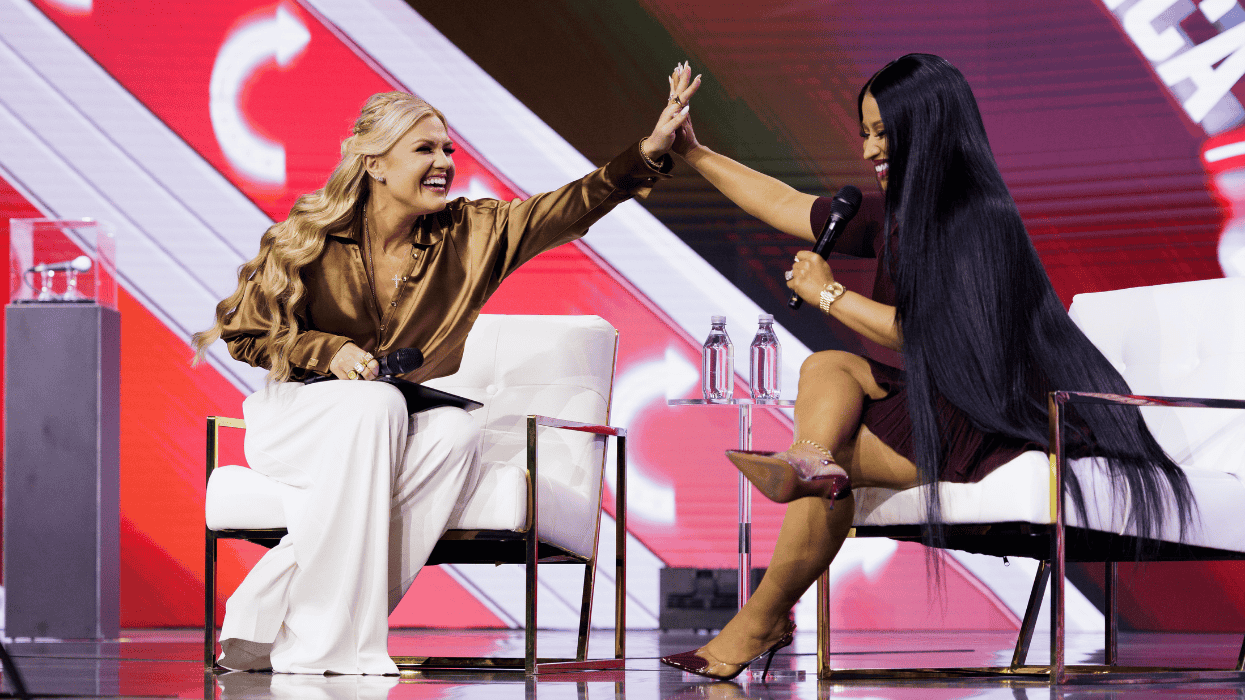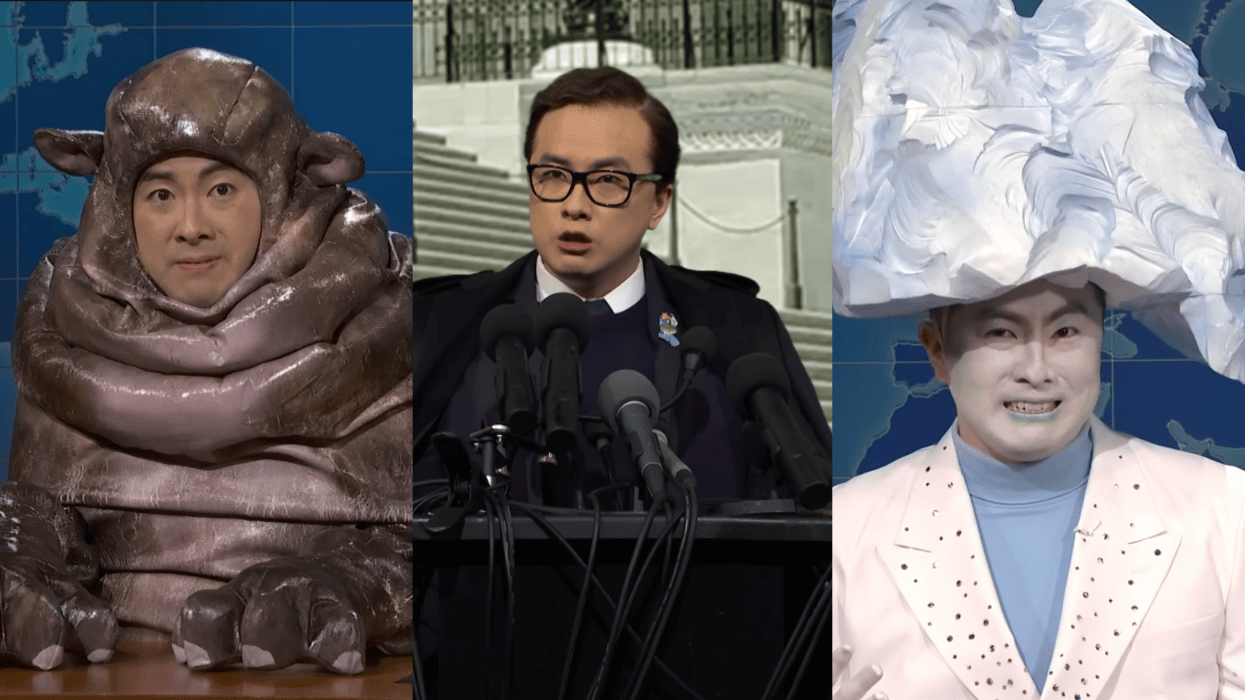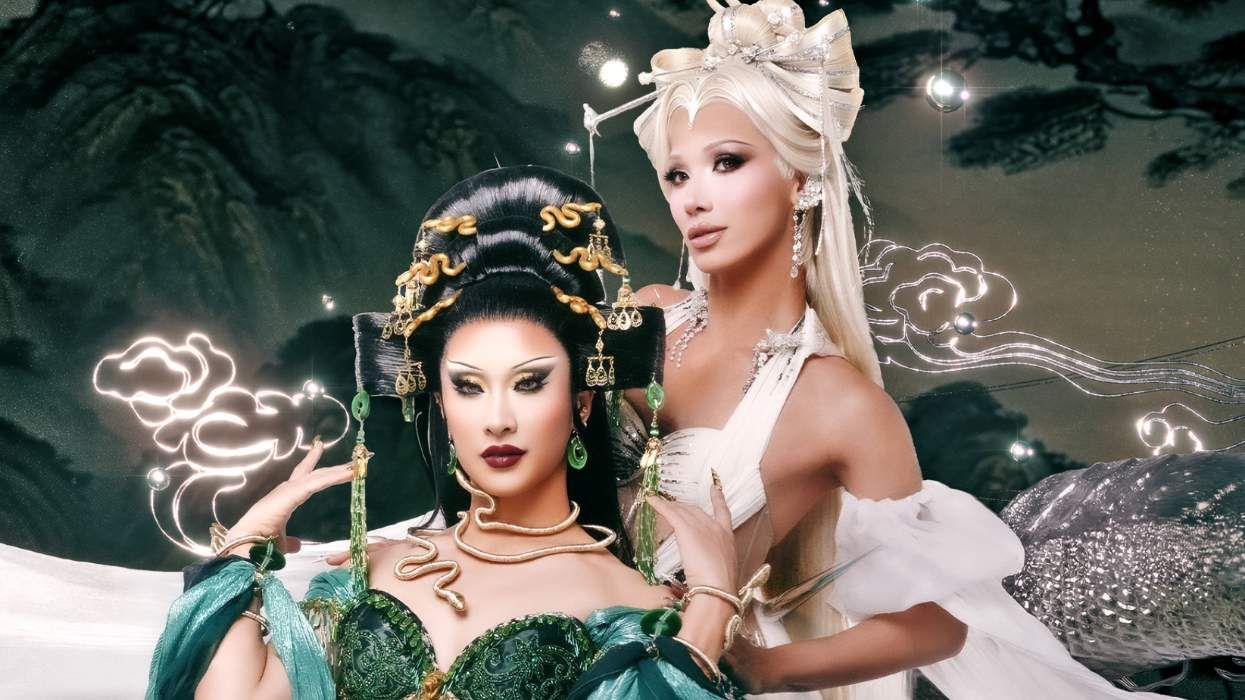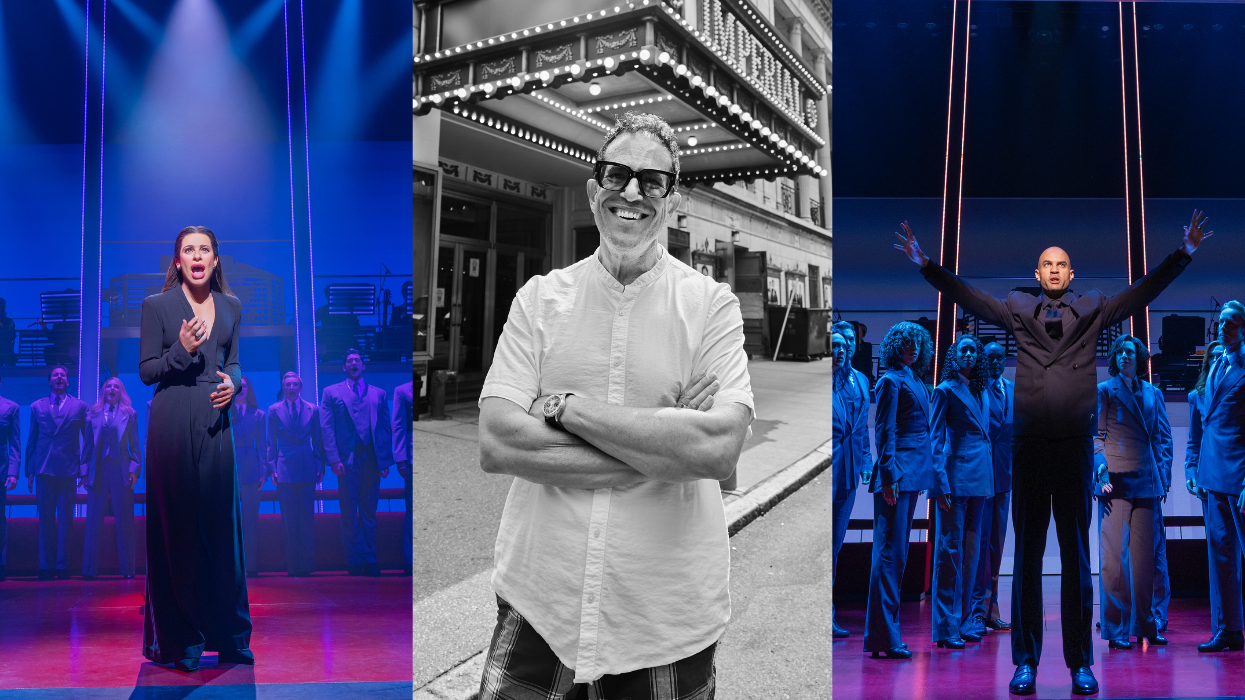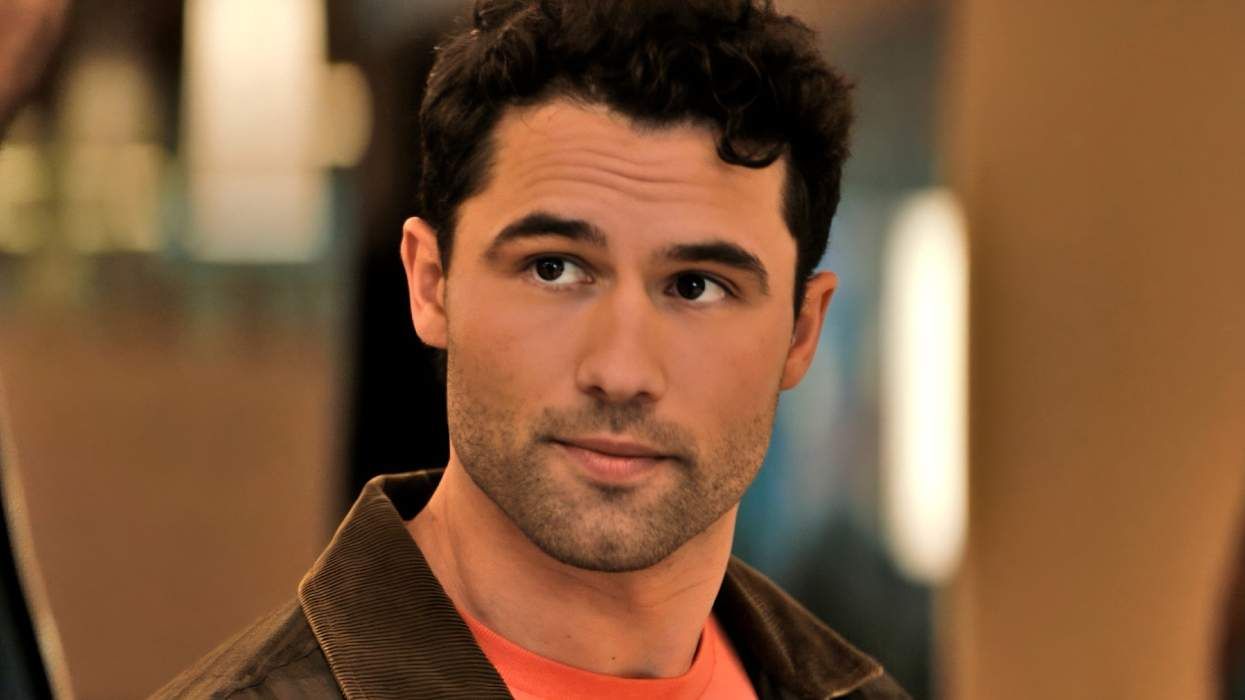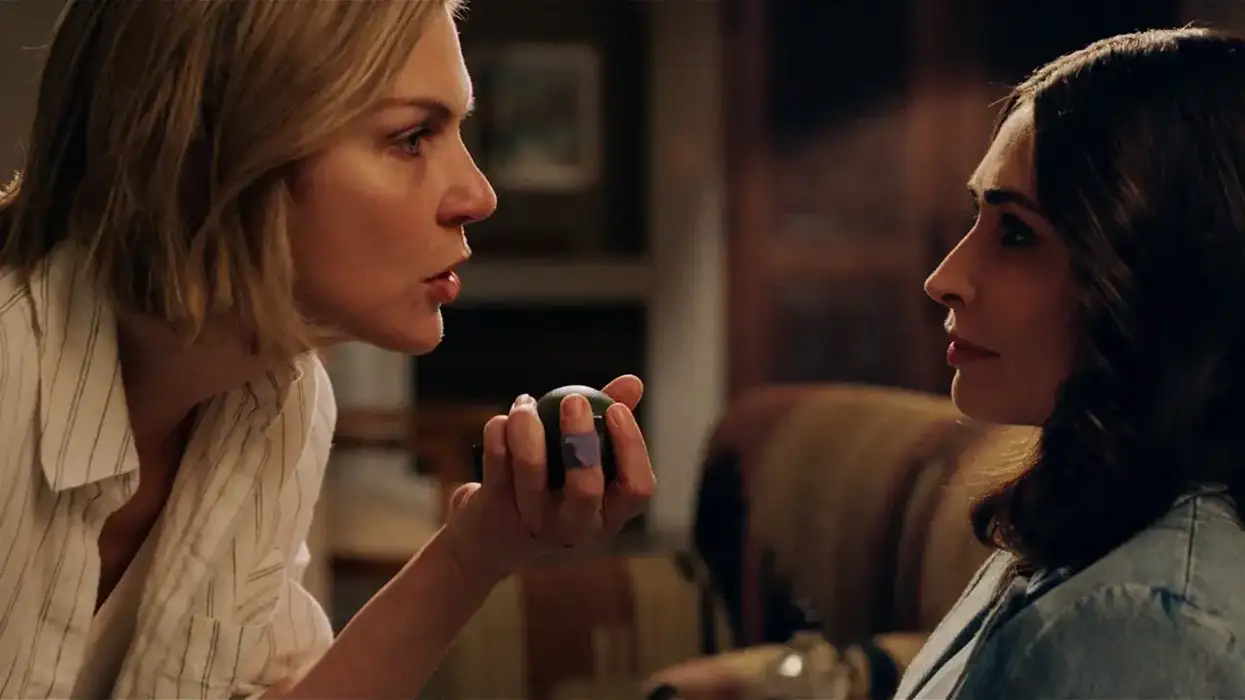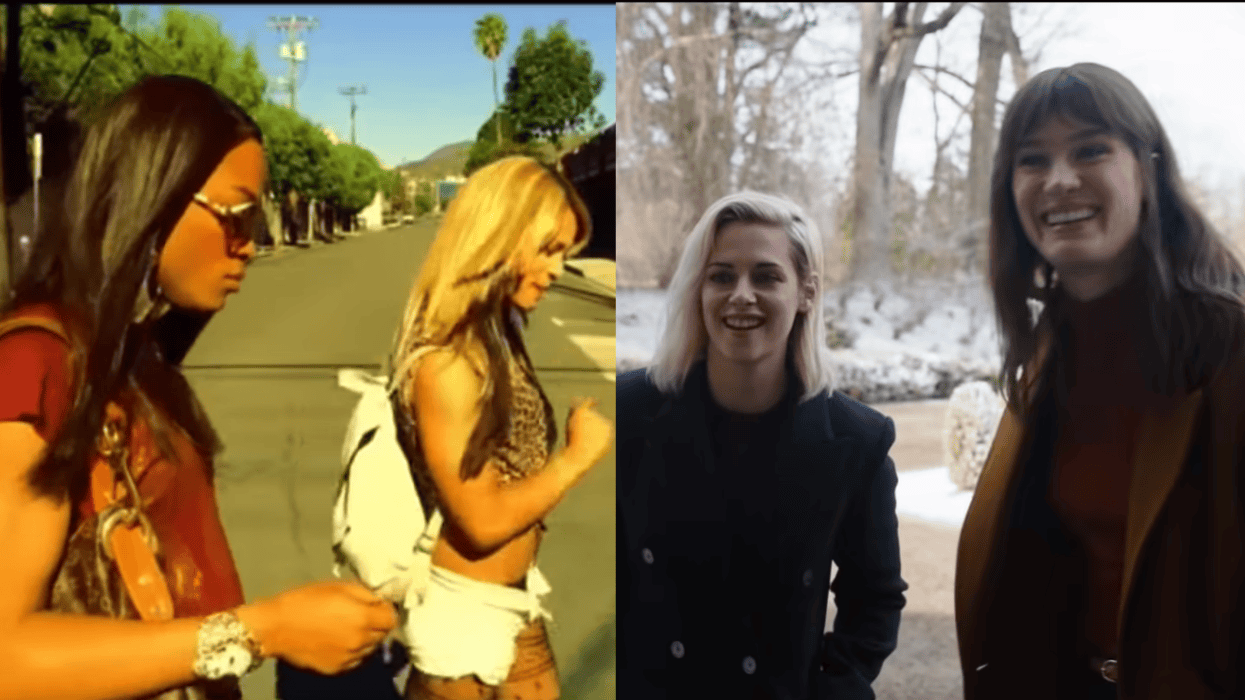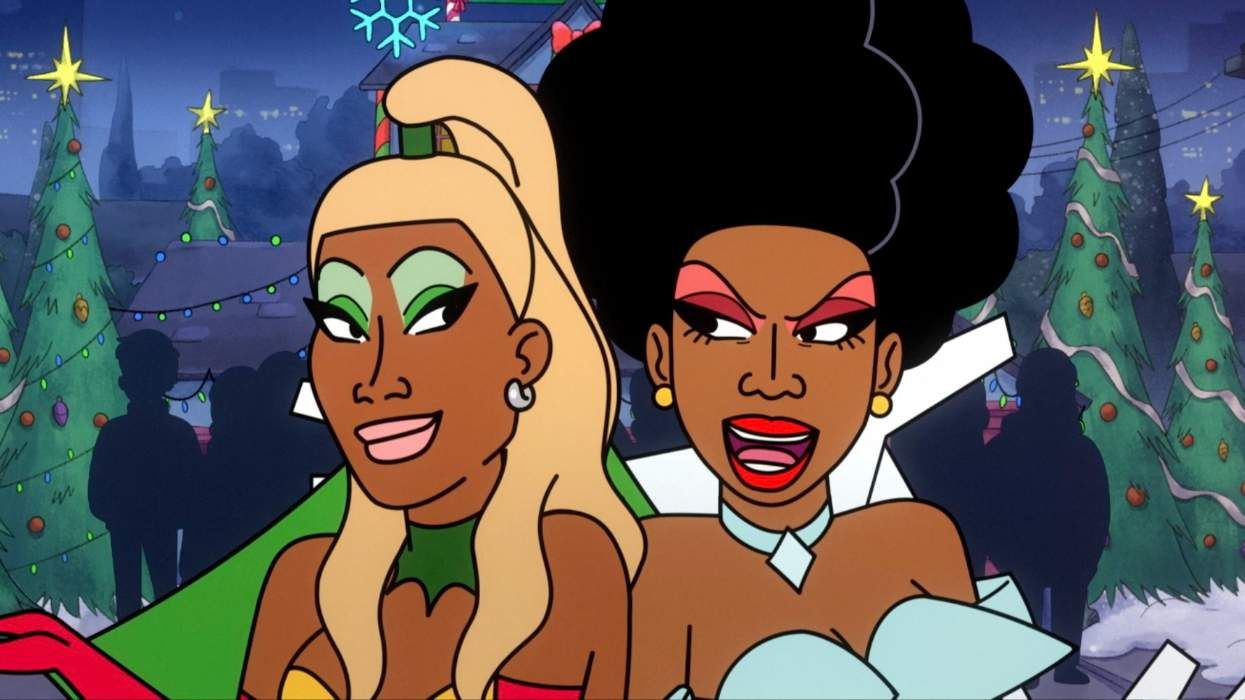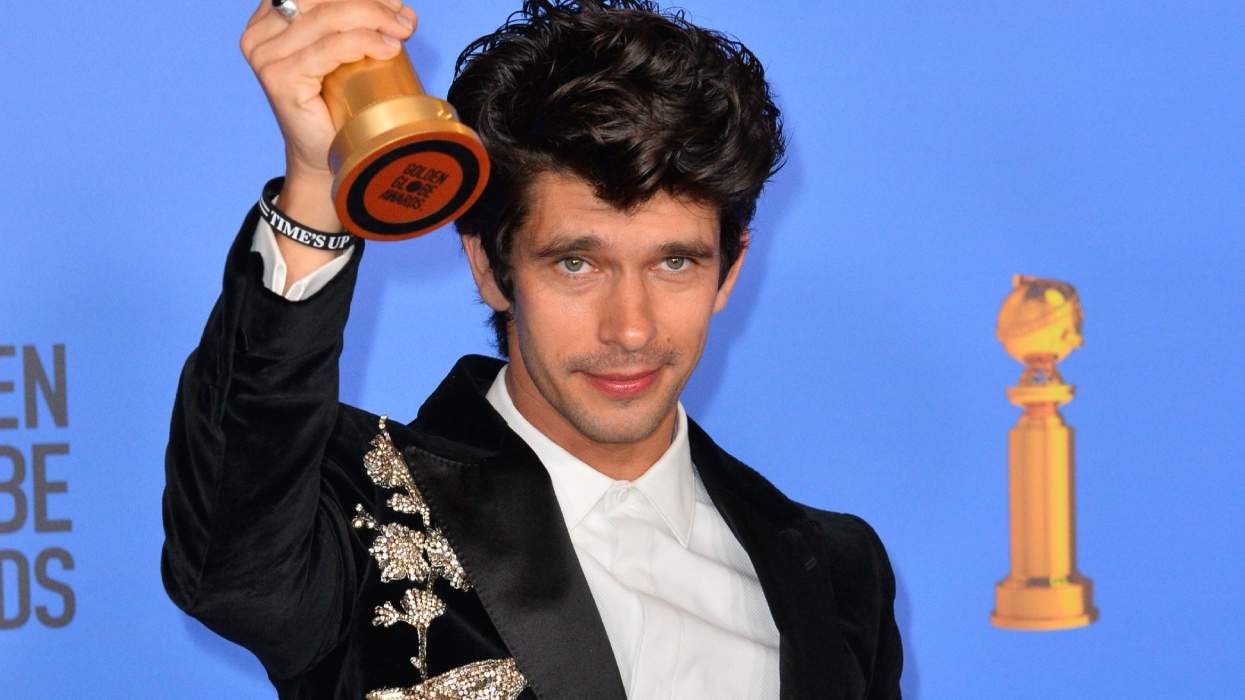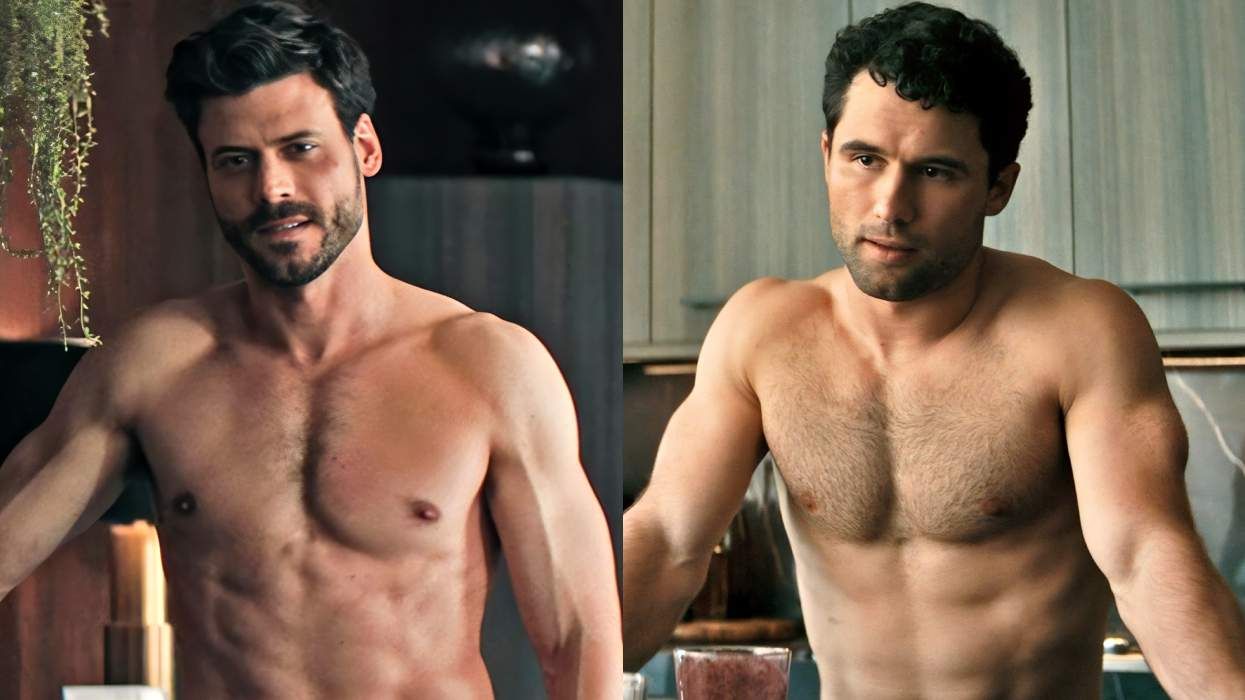This week's RuPaul's Drag Race All Stars brought the return of one of its singular challenges: the makeover. Almost every season, queens makeover a set of non-drag queens and have to create the illusion of family resemblance between the two. This season, Drag Race chose to have the queens makeover their best friends -- AKA their best Judys -- and perform a toe-tapping tribute to actress, singer and queer icon Judy Garland.
As RuPaul introduces the week's maxi challenge to the girls, he mentions her icon status and makes a nod to her 1954 version of A Star Is Born. But he also mentions an enduring tale about Garland and her connection to the queer community. RuPaul begins to talk about the 1969 Stonewall Riots and mentions that Garland's funeral on June 27, 1969 fueled the Stonewall Riots, which commenced in the early hours of the next morning on June 28.
RuPaul says those present "used their grief over Judy's death to rise up and fight back" against authorities who were attacking them. But the line between Garland's death and the Stonewall Riots may not be as straight as RuPaul makes it out to be.
One Stonewall veteran, who was present during the riots, Thomas Lanigan-Schmidt, told the Washington Post in an interview that he doesn't really buy the Garland-Stonewall theory.
"There are people who connect [Garland's funeral] to the narrative of Stonewall, and you're not going to tell them it doesn't connect, so let them have it," he told the Post. "It didn't start the riot off, believe me."
The Post also points out that the 2004 book, Stonewall: The Riots That Sparked the Gay Revolution, pokes holes in the Garland theory. David Carter, the author, wrote that "no eyewitness accounts of the riot written at the time" mention Garland's funeral or peg her death as either inspiration or cause for fighting back. Both Carter and Lanigan-Schmidt told the Post that the street youth who actually participated in the riots were more likely to listen to rock or R&B, not Garland.
In a long Daily Kos blog post -- written by a community member, not a Daily Kos staff member -- one user compiled relevant information about this enduring mythos.
"Inevitably, whenever I'm discussing the riots with somebody, Judy Garland pops up," the blog post reads. "It's the proverbial zombie of gay history. We can continue to blow holes in it, but it just keeps lurching forward, green slime dripping from its mouth and all."
The blog post also points to Carter's book, which adds that only one historical document mentions Judy Garland and Stonewall together is a gossip column in the New York Mattachine Newsletter from August of 1969 which only brings up Garland's death amid other gay news sundries.
In fact, one of the few pieces that links Garland's death and the Stonewall Riots is a homophobic Village Voice column from July 10, 1969 called "Too Much, My Dear." The heterosexual writer links the two to mock queer people.
"The combination of a full moon and Judy Garland's funeral was too much for them," Spencer writes in a paraphrased quote attributed to a friend. He calls Stonewall (in the next sentence) the Great F****t Rebellion.
There's similarly no mention of Garland in the New York Mattachine newsletter, which was reprinted in The Advocate in 1969.
Why does this matter? Can't we just stop being angry about everything and just let the myth endure? It is important that, as history morphs into mythology, that accuracy doesn't fall by the wayside. Chryanthemum Tran argued for historical accuracy in June in an essay for them. that showed that it probably was not, in fact, either Marsha P. Johnson or Sylvia Rivera that threw the first brick at Stonewall. And that's OK. Johnson and Rivera's long, documented legacy of activism would shine regardless of whether they threw the first or seventh brick. Similarly, Garland's legacy in the queer community will endure -- in her voice and in the "Judys" nomenclature -- whether or not her funeral is shoehorned into the narrative of the birth of the queer revolution.
Related | First Look: Renee Zellweger as Judy Garland for Upcoming Biopic



